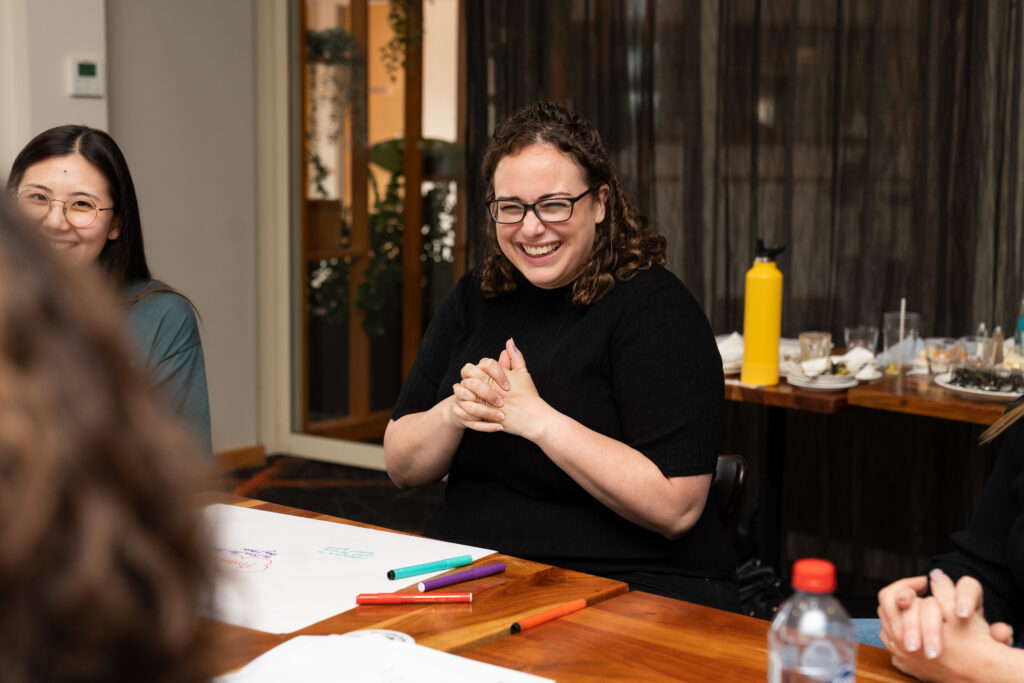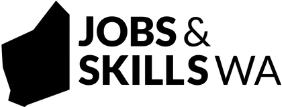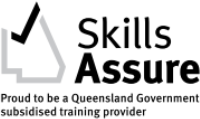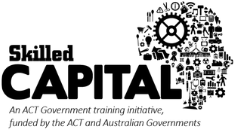The Diploma of Interpreting will develop your skills and knowledge to interpret between two languages, in general dialogue and monologue settings and manage interactions to assist retention and recall.
The Diploma of Interpreting prepares interpreters for work typically in the community and business domains, including subject areas such as social welfare and employment, community and culture, money matters, education, and general health. As well as interactions such as initial police interviews, over the counter interviews in customer and community information services, non-complex disability assistance, and other informal business and workplace interactions.

The Admissions Testing for the 2025 Diploma of Interpreting is now closed.
Info Sessions for 2026 classes will open in February 2026.
Diploma of Interpreting (Hearing) courses commence in Semester 2 of each year.
Diploma of Interpreting (Deaf) courses are offered in EVEN years. Next offering is in 2026.
2026 Admissions Testing
The next admissions process will commence in February 2026.
Sign up to join the mailing list to get alerts when the next admission process opens.
To get an idea of our next course’s locations, days and times, we suggest you look at the Program Factsheets in the ‘Course Documents’ tab.
Use the tabs below to toggle through the various categories of information.
Diploma of Interpreting Info Sessions are FREE and are open to the public.
Info Sessions are aimed at anyone interested in studying the Diploma of Interpreting. In 2026, there will be separate sessions for hearing and Deaf applicants.
Info Sessions are the best way to understand more about:
You will also have an opportunity to ask general questions about the course structure and requirements. Any questions related to your personal circumstances are best directed to Student Services.
Registrations for Info sessions will open in January 2026.
Deaf Info Sessions:
Hearing Info Sessions:
PSP50922 – Diploma of Interpreting (Auslan) is made up of 12 units that you will need to successfully complete in order to attain your Diploma of Interpreting.
Core units (Deaf and Hearing students):
Group A: Auslan Specialisation (Deaf and Hearing students)
Group C: General Electives (Deaf and Hearing students)
Group C: General Elective (Hearing students only)
Group C: General Elective (Deaf students only)
More information about this qualification and its units can be found on training.gov.au.
All classes will experience delivery of the course across a range of teaching and learning methods:
All sessions with a trainer (online or in-person) are timetabled in your Course Guide.
Study locations are always dependent on the number of enrolments received for each course.
Deaf Connect aims to deliver the following class formats:
All classes will be hosted online for Term 1 (October to December in your first year) before commencing designated classes for Terms 2-5 (January – December in the following year).
All classes have four (4) mandatory in-person Weekend Workshops as part of their studies. These Weekend Workshops are held in Sydney and Brisbane every year, and in Perth on the odd years where a Perth class is offered. More information about the Weekend Workshops can be found under ‘Course Requirements’.
Please note that we may NOT be able to guarantee continuity of delivery after any of our courses. This means that if you choose to defer your enrolment from a course, a similar offering may NOT be available next year and your deferral will be at risk of expiry.
Deaf Connect may make reasonable adjustments to accommodate students with disability, where possible. The adjustment made will be determined on a case-by-case basis after assessment of the individual need(s) of the student.
You can find more information in our Support Services Policy or in our Student Handbook.
On successful completion of the course, graduates will be able to apply for NAATI Certification and/or Recognition, which is a prerequisite for most employers in the industry:
Your enrolment in the course does not guarantee that you will successfully complete or that you will obtain a particular employment outcome where it is outside of Deaf Connect’s control.
Students must have successfully completed all units in order to be issued with an AQF [Australian Qualifications Framework] certification documentation for PSP50922 – Diploma of Interpreting (Auslan).
| Note for current Auslan-English Interpreting Bridging Course students:
Students who completed all tasks and assessments in the Auslan-English Bridging Course of the same intake year (e.g. complete the 2025 Auslan-English Interpreting Bridging Course for entry into the 2025 Diploma of Interpreting) are not required to undertake the Pre-Screening or Admissions Testing. |
There are no occupational licensing, certification or specific legislative requirements applicable to this qualification at the time of publication on the National Register.
Interested applicants must have completed, or have Auslan skills equivalent to, PSP51018 – Diploma of Auslan. If you have not completed formal study to this level but can demonstrate skills equivalence, you can still apply.
As a result, Deaf Connect requires all applicants to complete the following in order to be offered a place in the course:
Candidates who are successful at the Admissions Testing and who are offered a place in this course but choose not to enrol will be subject the complete the entry requirements again if they wish to re-apply for the course in the future.
Hearing candidates who are not offered a place in the Diploma of Interpreting will also be assessed for entry in the Auslan-English Interpreting Bridging Course.
You can find more information in our Enrolment Policy or in our Student Handbook.
Next intake’s admission process opens in February 2026 and is open to Deaf and hearing applicants.
Pre-screening is open to the public, however we strongly advise anyone interested in enrolling in the Diploma of Interpreting attend an Information Session before commencing the admissions process.
Register for a 2026 Info Session in the ‘Info Sessions’ tab.
Deaf Applicants:
Info Sessions: (both sessions cover the same information)
Pre-screening:
Admissions Testing:
Hearing Applicants:
Info Sessions (both sessions cover the same information)
Pre-screening:
Admissions Testing:
15 months – 45 weeks (including the four (4) in-person Weekend Workshops).
2025 Diploma of Interpreting:
Note: occasionally, designated classes will be combined to get the most from specialised trainers and peer collaboration.
Students are expected to complete approximately 10 hours per week for individual study, online learning, revision and processing of information from class activities, research and preparation for assessments, and community contact.
Students will be required to physically attend four (4) mandatory Weekend Workshops throughout the duration of the course, which will be held as follows:
Other than the AOW, which runs over three (3) days (with the Friday being optional), Weekend Workshops encompass two (2) full days (Saturday and Sunday, 9am – 5pm).
Weekend Workshop #1: AOW
Your first Weekend Workshop is the Auslan Only Weekend (AOW). Your AOW program will be specialised Diploma of Interpreting training, but your meal breaks, evenings and down time will be shared with students at various stages of their Auslan journey.
AOWs for this course will be held in Brisbane, Perth (on the odd years where a Perth class is offered), and Sydney. AOWs are residential (most meals and accommodation are provided).
Whilst accommodation and meals are included as part of your course fees, you will be responsible for covering the cost of getting to and from the venue.
You will be required to choose the location of the AOW you wish to attend, regardless of where you are located, at the point of enrolment.
Weekend Workshops #2 to #4:
Weekend Workshops will be held in Brisbane, Perth (on the odd years where a Perth class is offered), and Sydney.
You will be responsible for covering all associated costs for these Weekend Workshops (e.g. travel, accommodation, meals).
If Weekend Workshops are not available in your location, you will need to arrange to attend them at one of the advertised locations.
You need to have access to the following:
Note: Our Learning Management System (Moodle) is not easily accessible from smart phones or tablets and is best accessed on a laptop or desktop computer. Due to the way our courses are structured, the Moodle App for either Apple or Android is NOT SUITABLE for studying Deaf Connect courses. You are at risk of not seeing all learning materials in full when attempting to access them via a mobile phone or tablet.
For blended courses, laptops are preferred rather than phones or tablets and you may need to hotspot from your phone. For online only courses, you MUST use a laptop or desktop computer and your screen must be of adequate size (about 22”) in order for you to clearly see your trainer and classmates. We recommend you use two monitors: one for the PowerPoint and one for your Zoom class.
From 1 January 2015, Deaf Connect can be prevented from issuing you with a nationally recognised VET qualification or statement of attainment when you complete your course if you do not have a Unique Student Identifier (USI).
In addition, we are required to include your USI in the data we submit to NCVER. If you have not yet obtained a USI you can apply for it directly at https://www.usi.gov.au/students/create-your-usi/ on computer or mobile device.
You may already have a USI if you have done any nationally recognised training. It is important that you try to find out whether you already have a USI before attempting to create a new one. You should not have more than one USI. To check if you already have a USI, use the ‘Forgotten USI’ link on the USI website at https://www.usi.gov.au/faqs/i-have-forgotten-my-usi/.
To validate your USI on your Enrolment Form, the name and date of birth you provide must exactly match what is recorded in your USI account.
Common issues that can prevent validation include:
If this happens, update your USI account first here, then return to your Enrolment Form to attempt verification again.
Email is the primary means by which we will contact you about your course, e.g. to confirm a course once minimum enrolment numbers are achieved, or cancel if we do not receive enough enrolments.
Please ensure you enter your email address correctly at the time of enrolment.
Please also monitor your Junk folder for emails from Deaf Connect. If you do not receive an email about your course by at least the day before the scheduled start date, please contact us.
If you have general enquiries, you can contact Deaf Connect’s Student Services team during the following operating hours:
These operating hours ensure students enrolled in any state can contact us and receive live support Monday to Friday. Where a student contacts us outside of these hours, Deaf Connect will endeavour to respond within one (1) business day.
Government funding is available in certain states for students who meet specific eligibility criteria.
*Note: If the subsidies are confirmed, there will only be a limited number of places available for subsidised training under Skilled Capital in 2025. Subsidised places will be offered to students who submit their complete Enrolment Form on a first-come, first-served basis. Once the number of subsidised places is exhausted, the Fee For Service rate will apply.
**Note: The minimum age for students to enrol in the Australian Capital Territory is 17 years of age.
For the In-Person Weekend Workshops, you will be responsible for covering the following costs:
You can find more information in our Fees and Refunds Policy or in our Student Handbook.
CERTIFICATION DOCUMENTATION WILL NOT BE ISSUED UNTIL ALL FEES HAVE BEEN PAID.
Government funding is available in certain states for students who meet specific eligibility criteria.
*Note: Where you do not already hold a post-school qualification from any tertiary sector, achieved in Australia or overseas at any time previously, you may be eligible for the “First Qualification” student fee of $2,380. Depending on your previous qualifications and personal circumstances, your fee may also be different to the fee shown above.
For the In-Person Weekend Workshops, you will be responsible for covering the following costs:
You can find more information in our Fees and Refunds Policy or in our Student Handbook.
CERTIFICATION DOCUMENTATION WILL NOT BE ISSUED UNTIL ALL FEES HAVE BEEN PAID.
Government funding is available in certain states for students who meet specific eligibility criteria.
For a breakdown of the fees at a unit of competency level, see the Program Factsheet relevant to your course of choice. Deaf Connect will send you a first invoice upon enrolment for the unit(s) of competency being delivered during the course.
*Note: Under the Queensland Subsidised Training List, Deaf Connect has an exemption for this course that allows students who hold a certificate IV or higher level (already completed) qualification to still be considered for funding eligibility, as long as they meet all other eligibility criteria.
For the In-Person Weekend Workshops, you will be responsible for covering the following costs:
You can find more information in our Fees and Refunds Policy or in our Student Handbook.
CERTIFICATION DOCUMENTATION WILL NOT BE ISSUED UNTIL ALL FEES HAVE BEEN PAID.
Government funding is available in certain states for students who meet specific eligibility criteria.
*Note: The minimum age for students to enrol in South Australia is 16 years of age.
For the In-Person Weekend Workshops, you will be responsible for covering the following costs:
You can find more information in our Fees and Refunds Policy or in our Student Handbook.
CERTIFICATION DOCUMENTATION WILL NOT BE ISSUED UNTIL ALL FEES HAVE BEEN PAID.
Government funding is available in certain states for students who meet specific eligibility criteria.
For more information, please visit the Jobs and Skills WA website.
For a breakdown of the fees at a unit of competency level, see the Program Factsheet relevant to your course of choice. Deaf Connect will send you an invoice at the commencement of each unit of competency.
*Note: The Student tuition fees are indicative only and are subject to change given individual circumstances at enrolment. Additional fees may apply such as resource fees and other fees.
For the In-Person Weekend Workshops, you will be responsible for covering the following costs:
You can find more information in our Fees and Refunds Policy or in our Student Handbook.
CERTIFICATION DOCUMENTATION WILL NOT BE ISSUED UNTIL ALL FEES HAVE BEEN PAID.
For the In-Person Weekend Workshops, you will be responsible for covering the following costs:
You can find more information in our Fees and Refunds Policy or in our Student Handbook.
CERTIFICATION DOCUMENTATION WILL NOT BE ISSUED UNTIL ALL FEES HAVE BEEN PAID.
For detailed information about this course, you can access the Course Guide appropriate to your course (based on its commencement) below:
The Student Handbook contains information about Deaf Connect’s obligations towards our students, information about students’ rights and obligations towards Deaf Connect, as well as links to the relevant policies.
You are required to read and understand our Student Handbook prior to enrolling into this course.
The below is the list of Deaf Connect’s course offerings for S2, 2025 and their associated Program Factsheet.
Students considering enrolling in a course must read and are strongly encouraged to download the Program Factsheet relevant to their course of choice.
Students in QLD (blended)
Students in WA (blended)
Online Students
For candidates who are offered a place in the Auslan-English Interpreting Bridging Course, please visit this page.
The Program Factsheets for the Semester 2, 2024 offerings can still be accessed through the Semester 2, 2024 Course Guide.
FUNDING ELIGIBILITY EVIDENCE
In order for Deaf Connect to assess your funding eligibility, you will need to provide some evidence along with your Enrolment Form.
Proof of ID in the form of one of the following:
Proof of residency or employment in the form of one of the following:
If relevant, proof of disability in the form of one of the following:
Note (students in ACT and NSW):
The documents you provide must be a copy of the original which has been sighted and signed by an Approved Witness within the last twelve (12) months. For a list of Approved Witnesses, please visit the Attorney-General’s Department page.
Note (students in SA):
As part of the enrolment process, you will also need to submit a completed Agreement Form – Collection and Use of Personal Information form. You can download and complete this form in advance, so you have it ready to be uploaded with your online Enrolment Form.
COURSE CONFIRMATION
Courses will only be confirmed once minimum enrolment numbers have been reached. Students will receive a confirmation email confirming that their course is going ahead
The admission process starts between February and March 2026 for enrolments into Semester 2, 2026.
If enrolling in an online class, please make note of the time zone of the class you choose to enrol in. The time zone is identified in brackets at the end of each course offering’s description. You can also check our time zone calendar below by clicking the “view time zone calendar” button.








